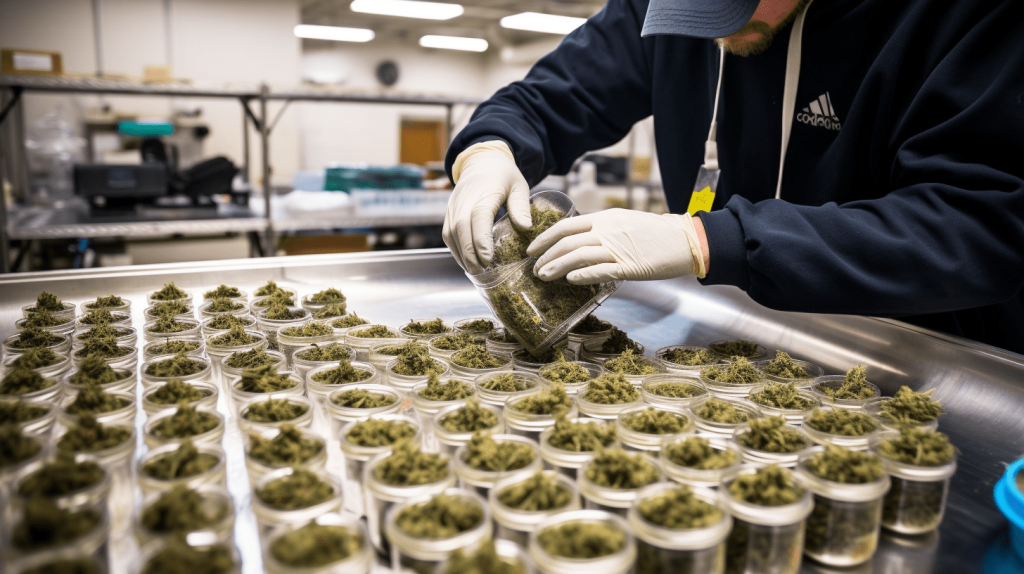Michigan Cannabis Company Denied Legal Action Due to Federal Ban on Marijuana
In recent news, a Michigan-based cannabis company, Viridis Laboratories, has been denied legal action against the Michigan Cannabis Regulatory Agency due to the federal ban on marijuana.
Many people within the cannabis community have been closely following this case, as it could potentially set a precedent for future legal battles involving cannabis businesses.
In awesome blog post, we’re gonna dive deep into the juicy details of this case and what it means for the Michigan cannabis industry!

Biggest Marijuana Recall in Michigan Sparks Controversy: Testing Facility Sues Cannabis Regulators
In November 2021, Michigan experienced its largest marijuana recall estimated at $200 million. The Cannabis Regulatory Agency (CRA) issued a recall for all products tested by Viridis Laboratories and Viridis North, with the exception of inhalable marijuana concentrate products.
These impacted products had a testing date between August 10, 2021, and November 16, 2021.
Then there was an update in November 2022 that the testing facility targeted for this recall, Viridis, is suing the Cannabis Regulators Association (CRA) for “clear intent to harm.” There are concerns about potential sales of moldy, contaminated marijuana after a judge lifted the recall.
The basis of the case lies in Viridis Laboratories alleging that the state agency had failed to properly regulate the cannabis market, which ultimately resulted in them losing business.
However, the judge ruled that the cannabis company lacked legal standing due to the federal ban on marijuana, as they deal in what is considered illegal contraband.

Michigan Marijuana is still Federally Illegal
This ruling highlights the ongoing conflict between state and federal laws regarding marijuana. While Michigan has legalized both recreational and medical marijuana, it is still considered illegal at the federal level. This can create difficulties for cannabis businesses operating within the state, as they may face legal challenges that other industries do not.
Additionally, this ruling could have implications for other states where marijuana is legal. If a similar case were to arise in, say, California or Colorado, would the outcome be the same due to federal laws? This uncertainty creates a challenging environment for cannabis entrepreneurs who are attempting to navigate the legal landscape surrounding their industry.
It is worth noting, however, that efforts are currently underway to change federal marijuana laws. The Marijuana Opportunity Reinvestment and Expungement (MORE) Act, which would remove marijuana from the list of federally controlled substances, has already passed in the House of Representatives. While it still needs to pass in the Senate, it is a promising step towards a more unified approach to marijuana laws.

In the meantime, Michigan cannabis companies should be aware of the legal limitations they face due to the federal ban on marijuana. They should also be mindful of the potential risks involved in operating within an industry that is not entirely legal at the national level. This includes making sure their business practices comply with all state regulations and obtaining legal representation if needed.
To wrap it up, the recent ruling against Viridis Laboratories really shines a light on the ongoing clash between state and federal marijuana laws. It does bring some challenges for businesses in the industry, but hey, there’s good news too! Efforts are underway to change federal laws and bring about a more unified and balanced approach to marijuana regulation.
Cannabis entrepreneurs should stay informed on these developments and make sure they are operating within the legal boundaries set by their state.
Overall, the Michigan cannabis market continues to grow and evolve, and we can expect to see more legal battles and legislative changes in the coming years.
















